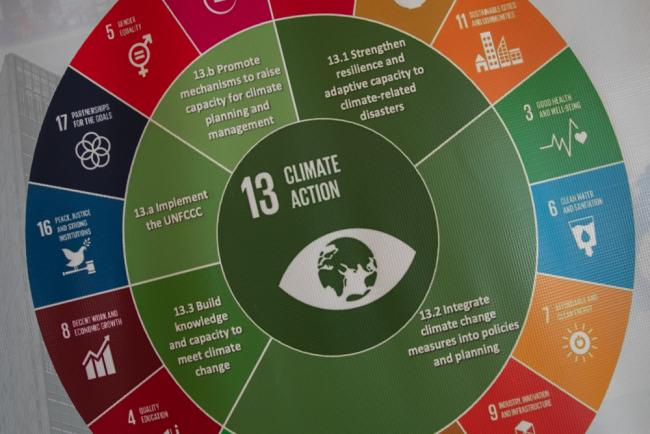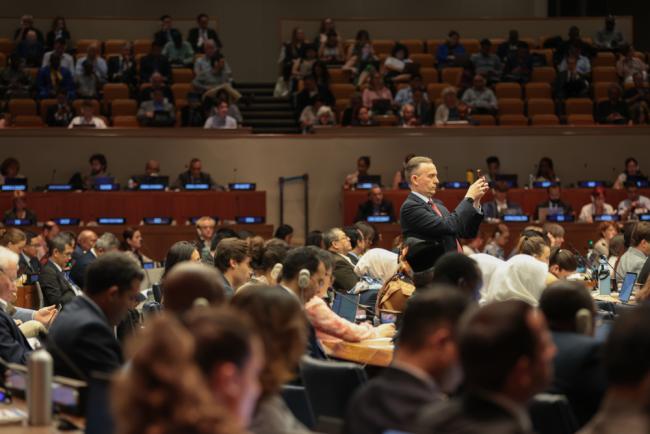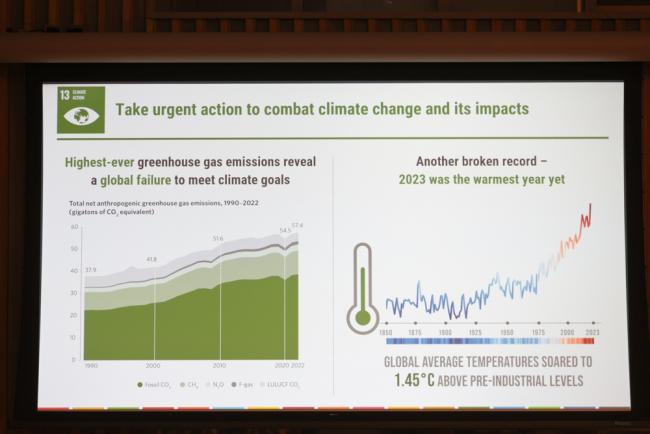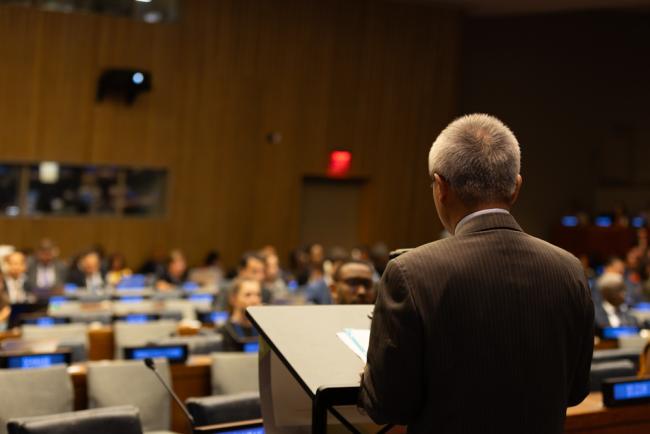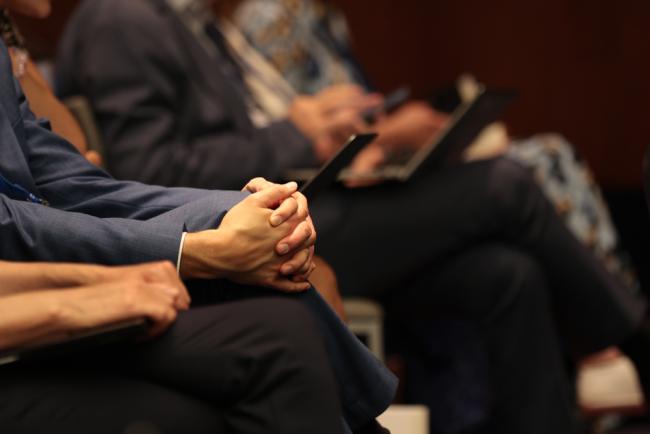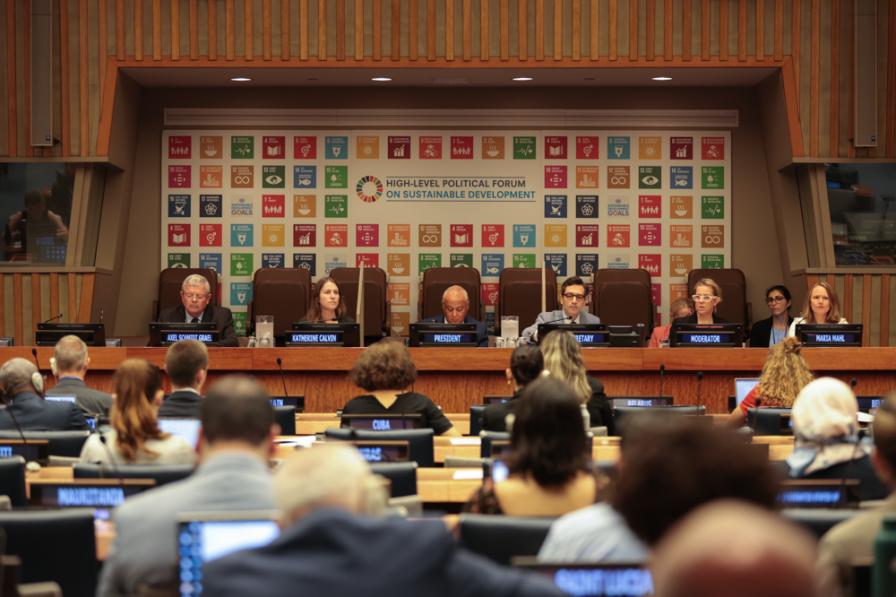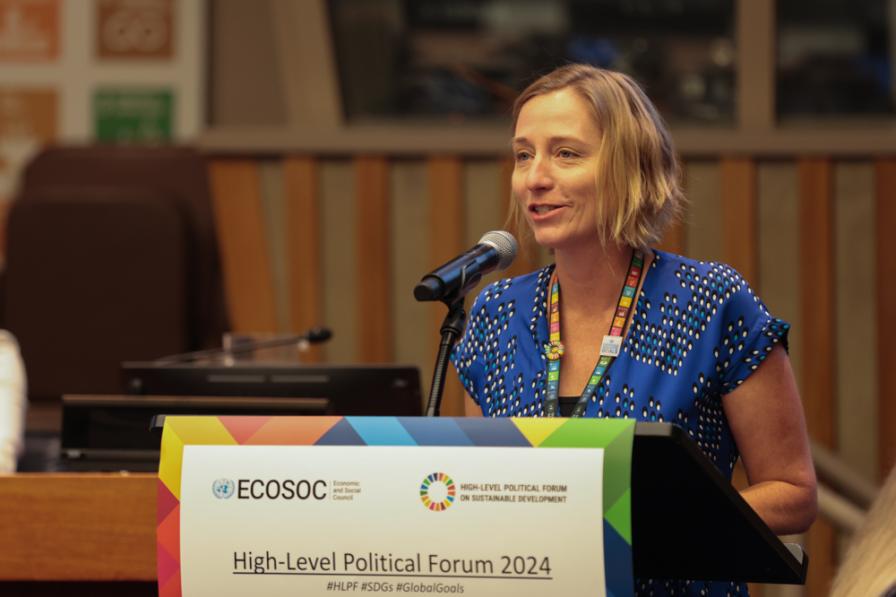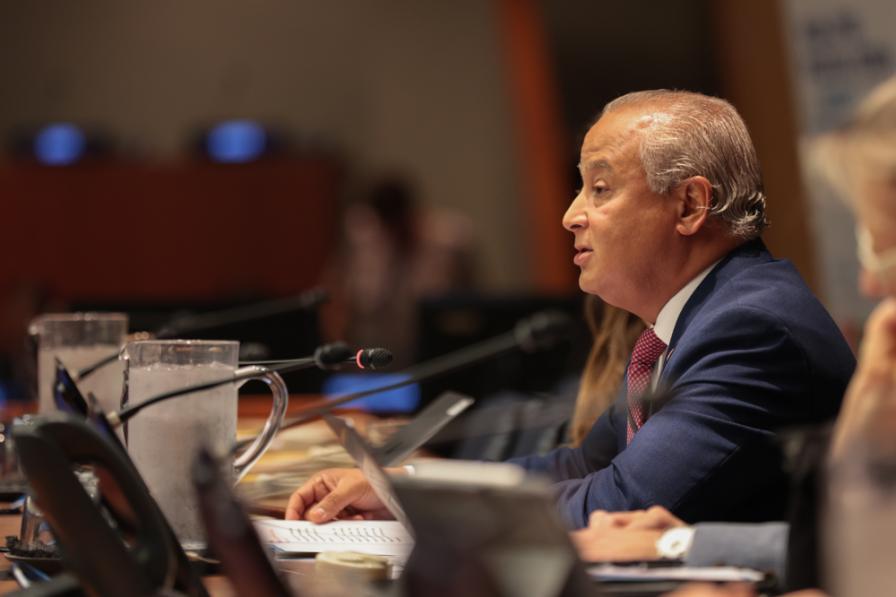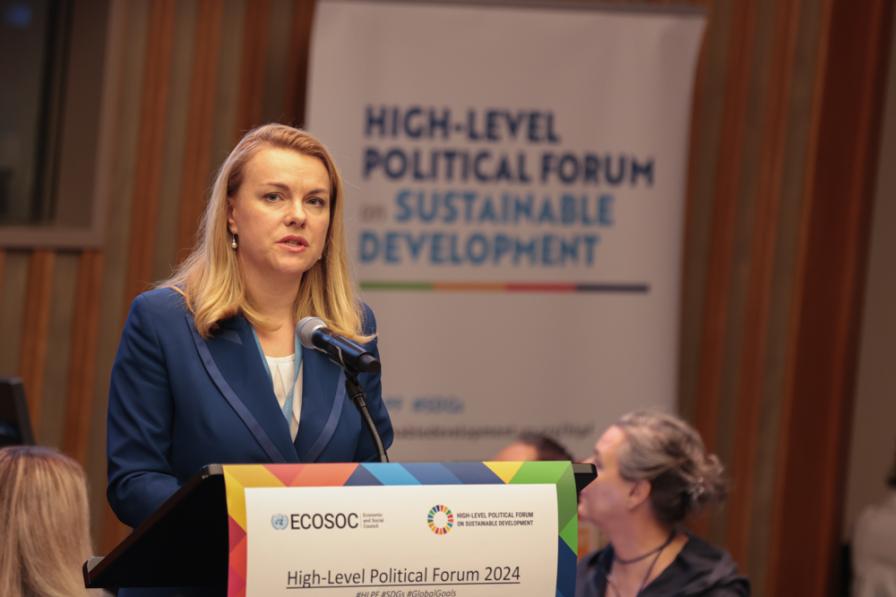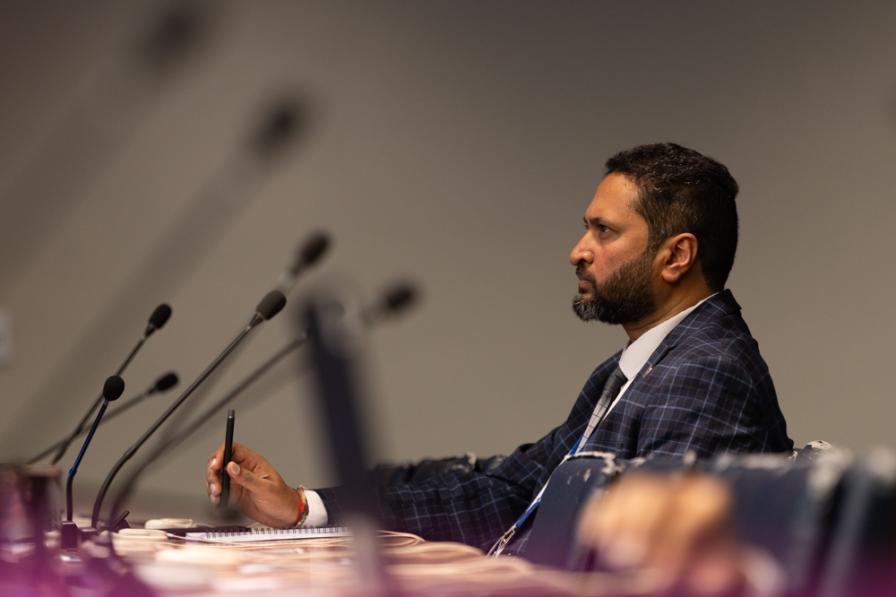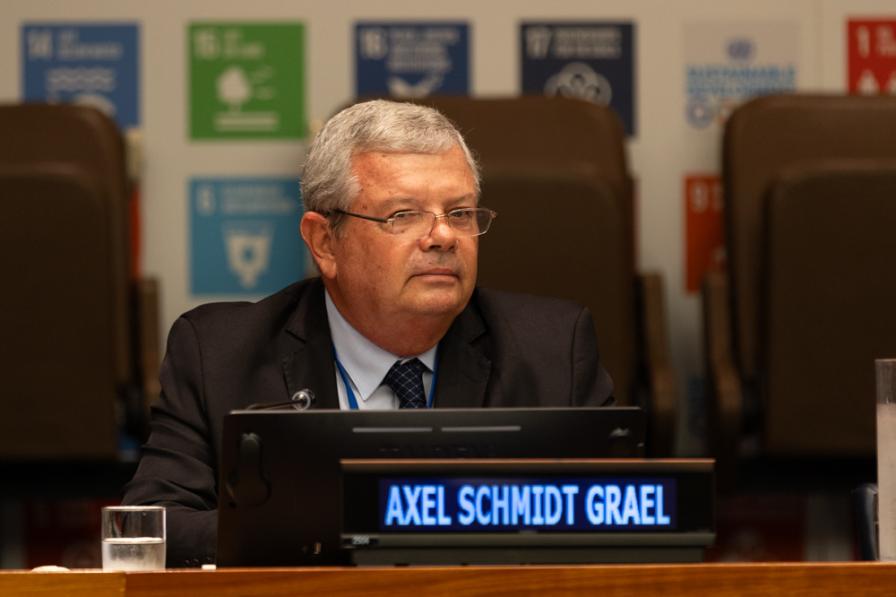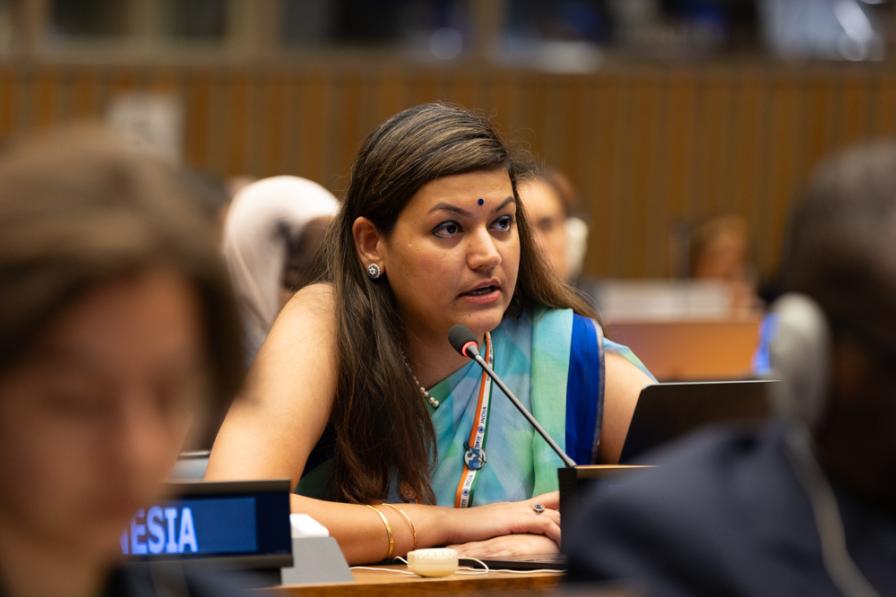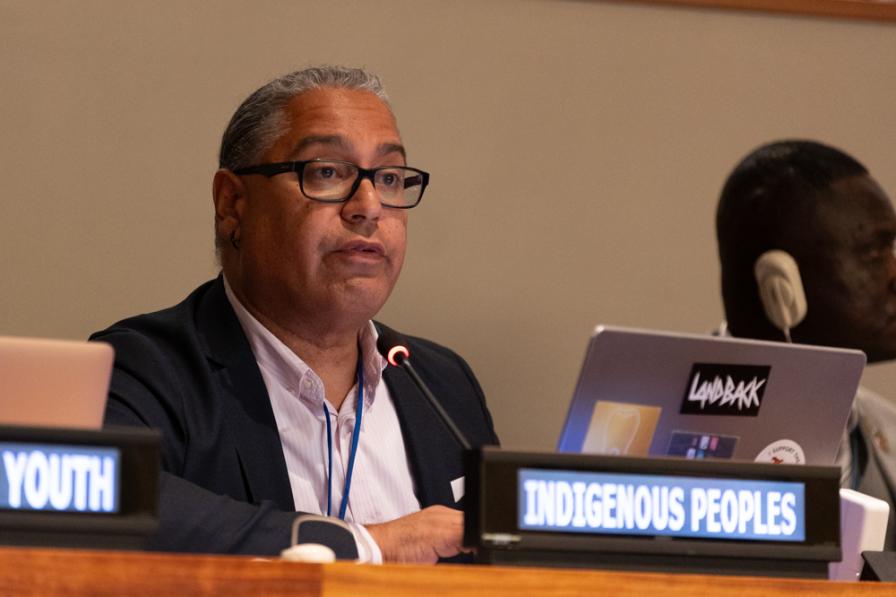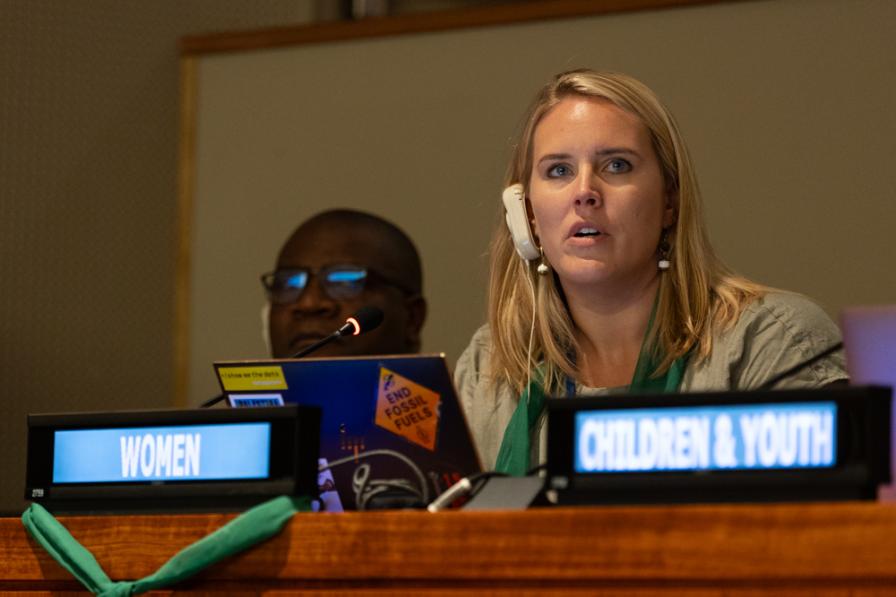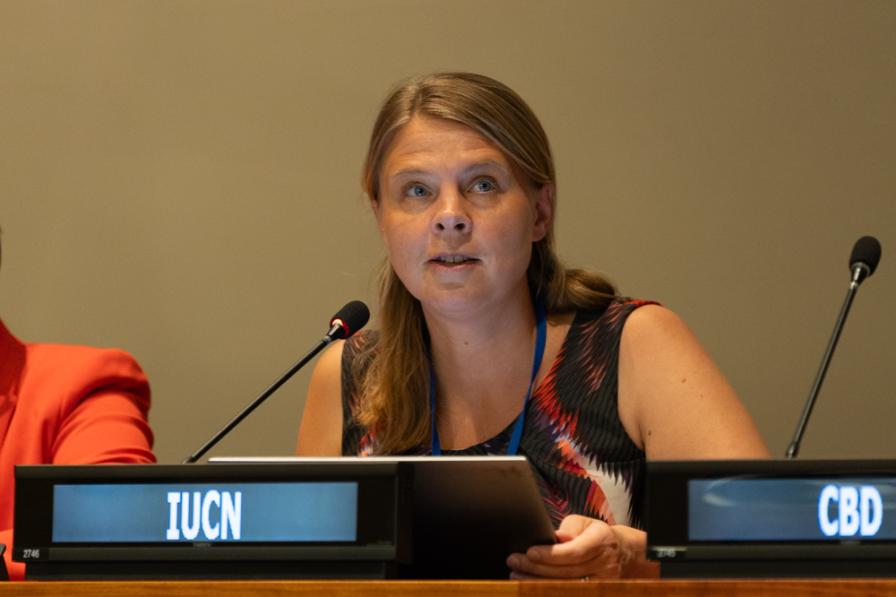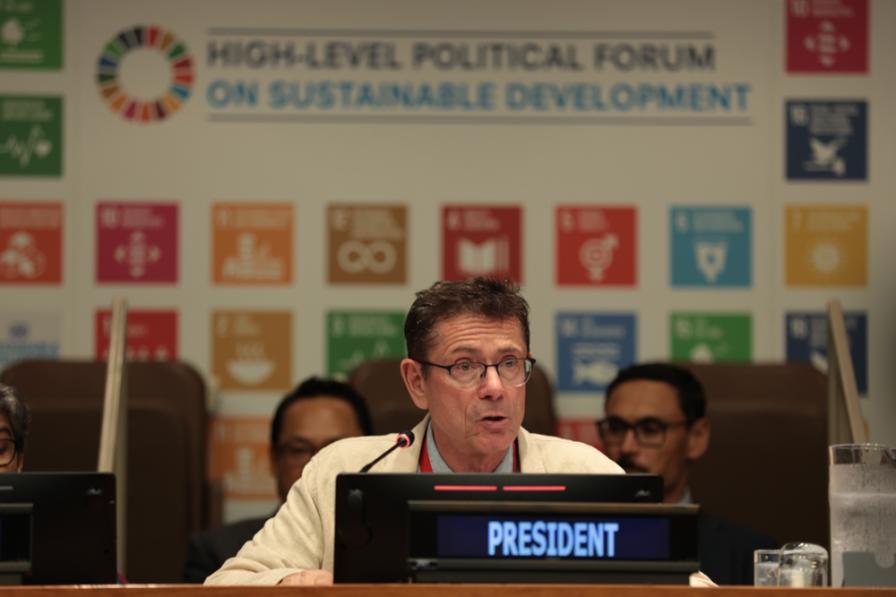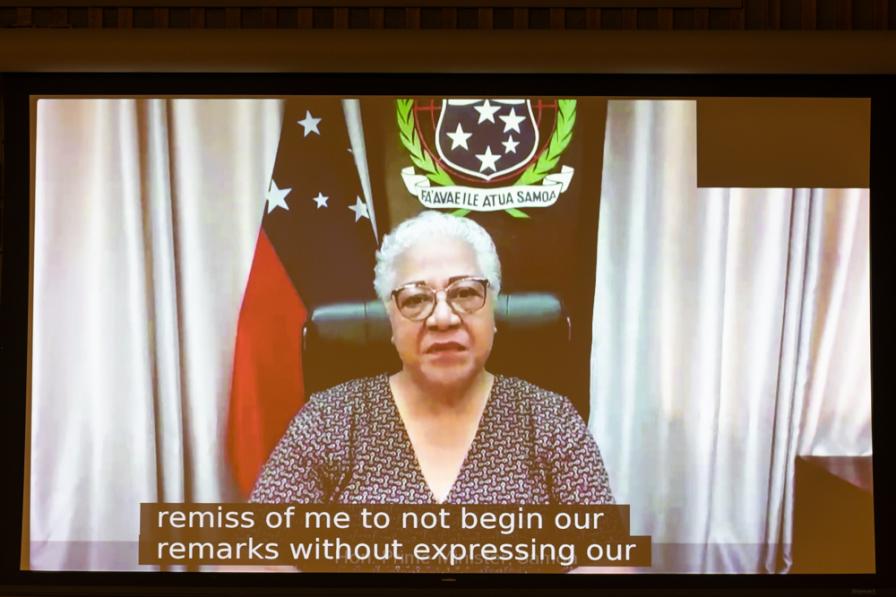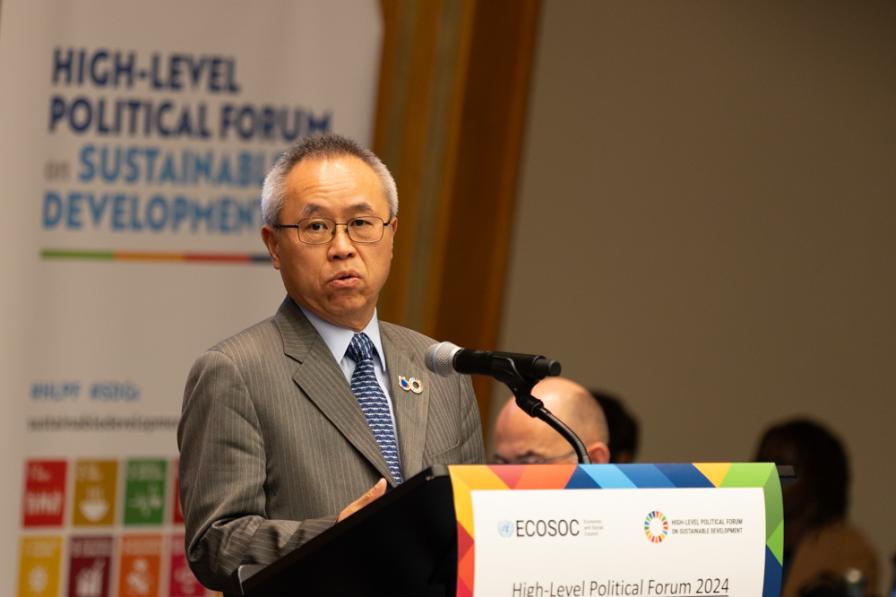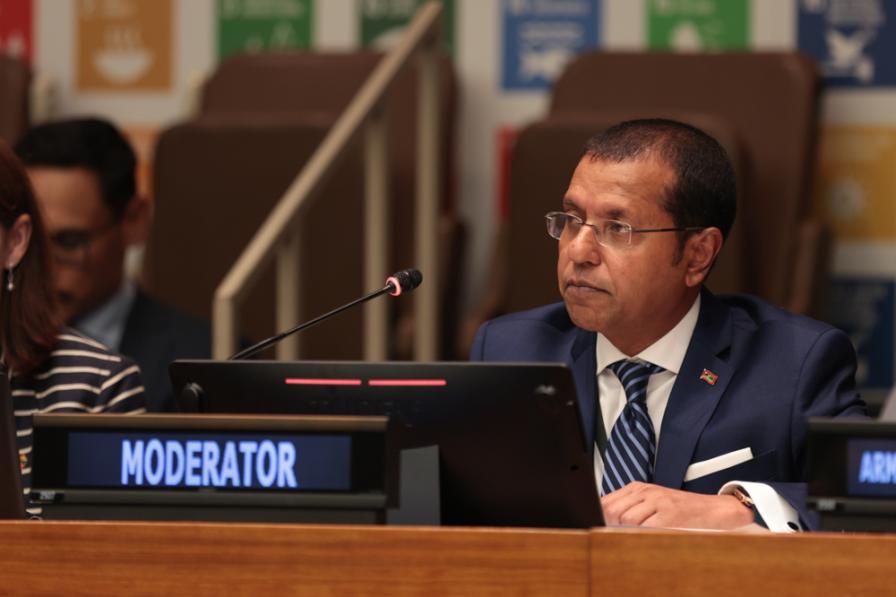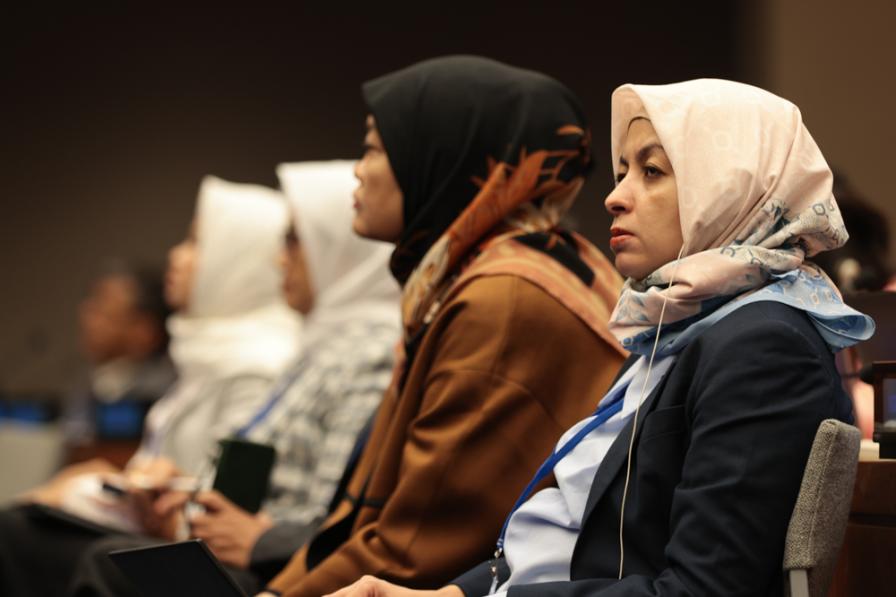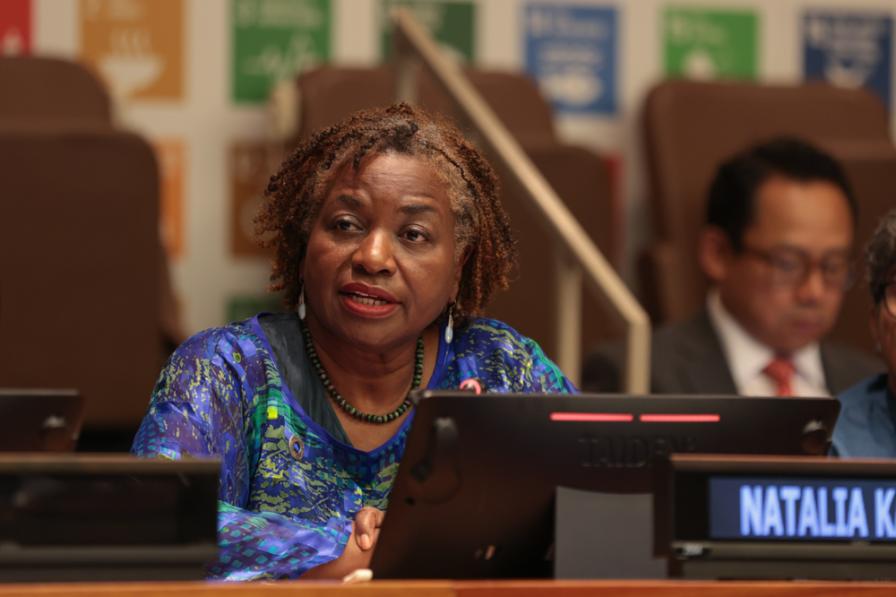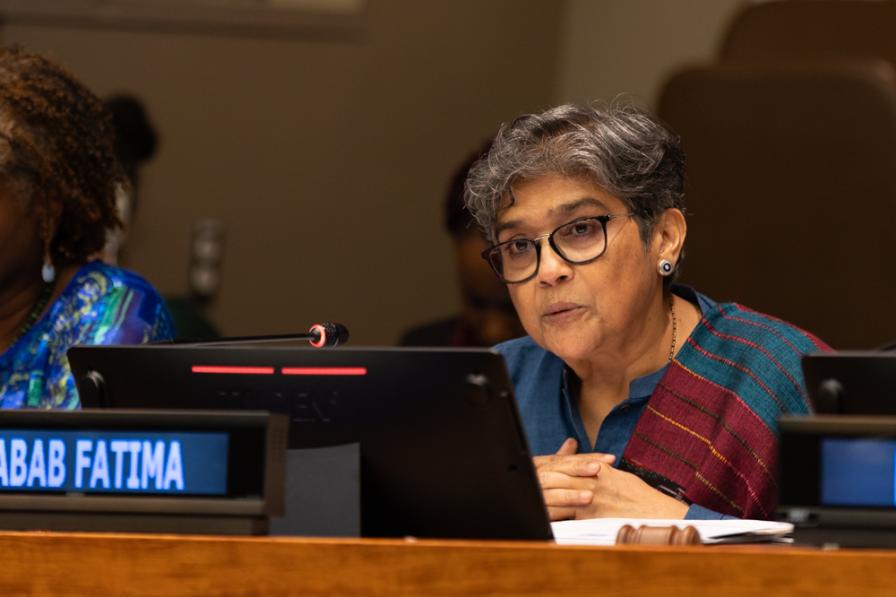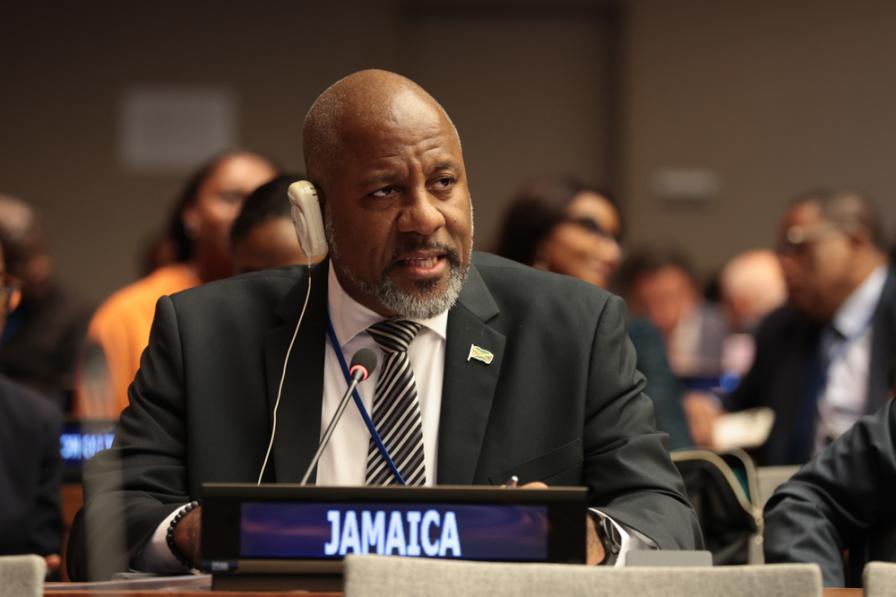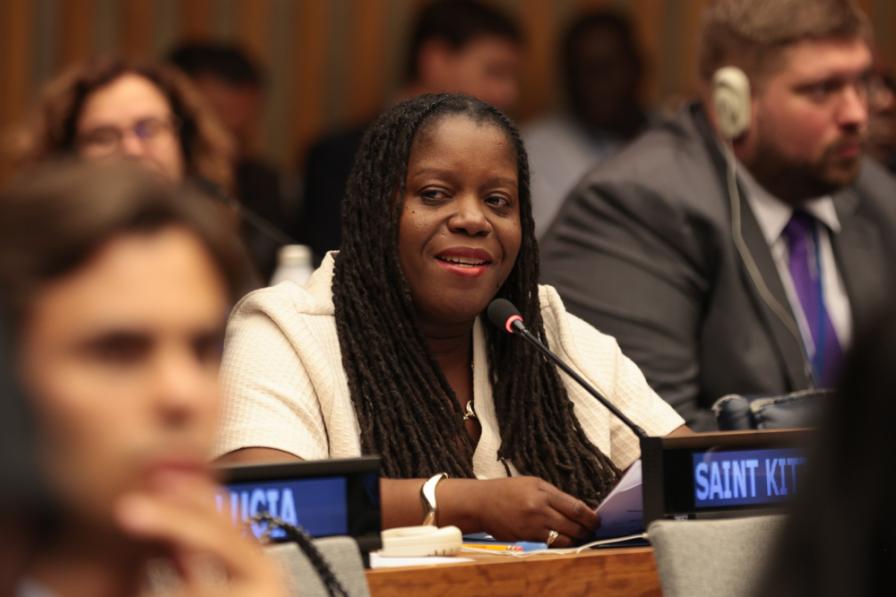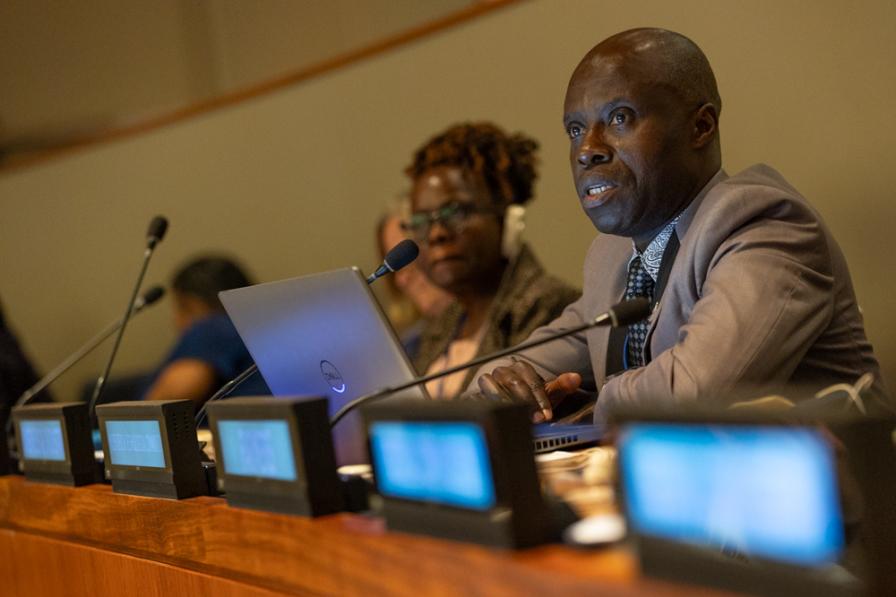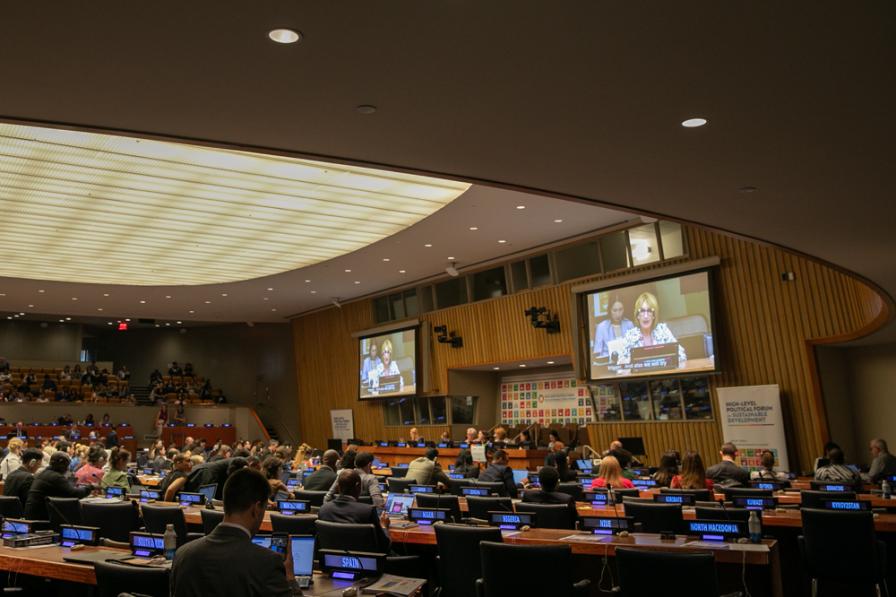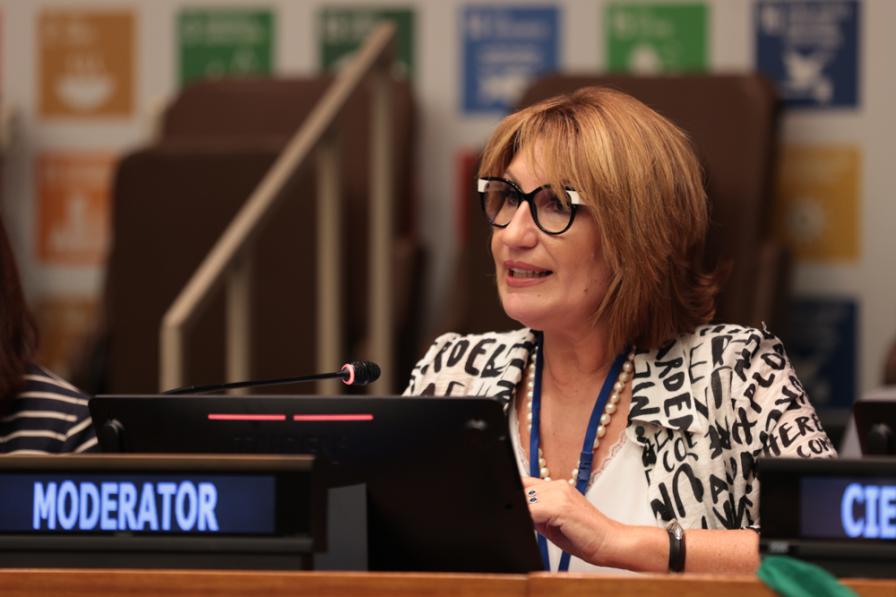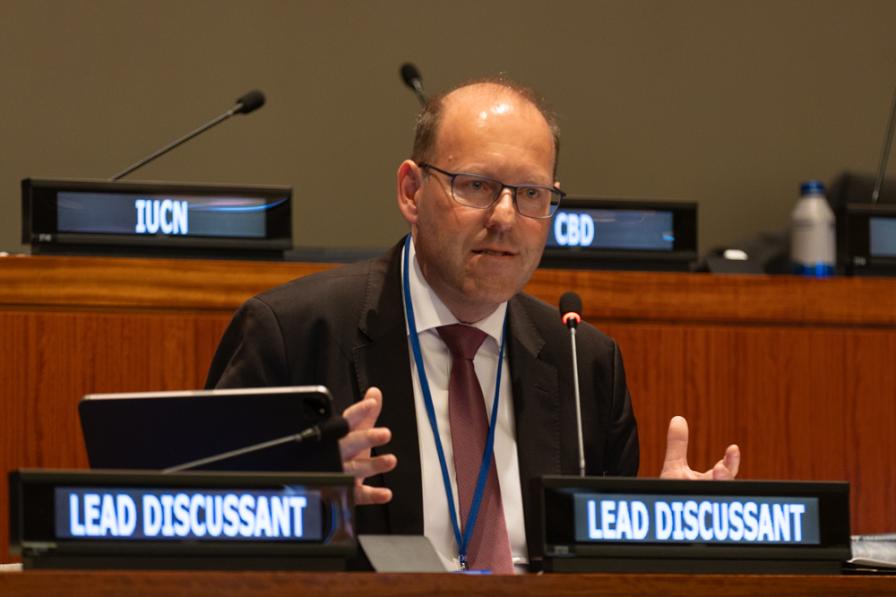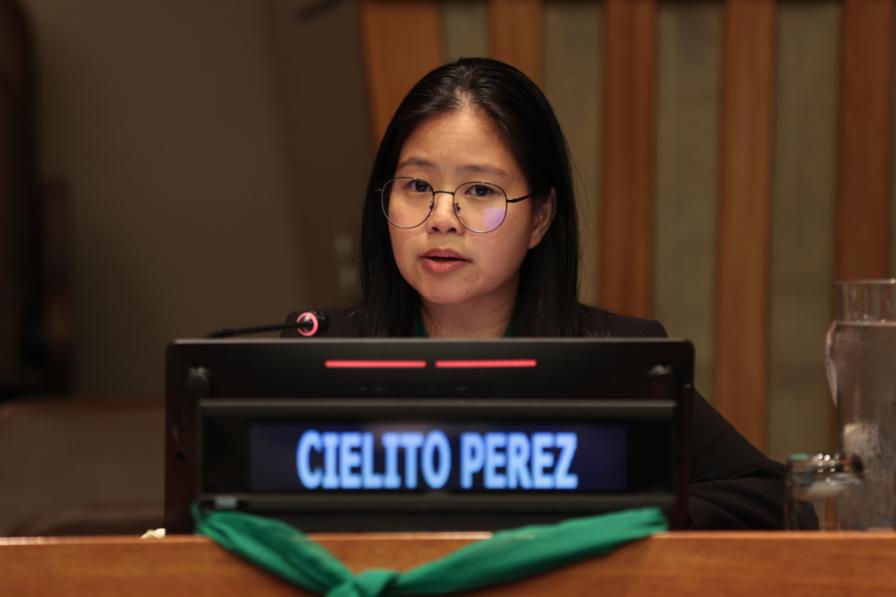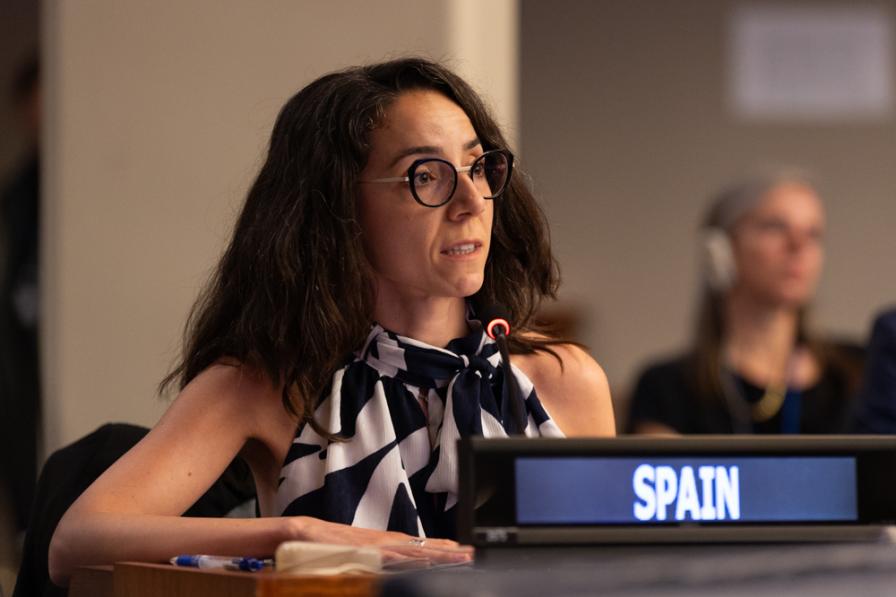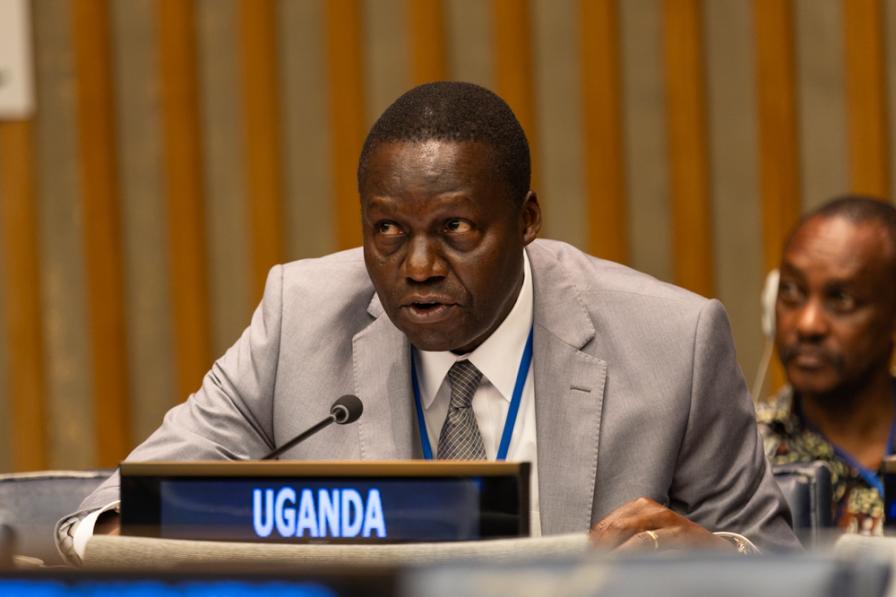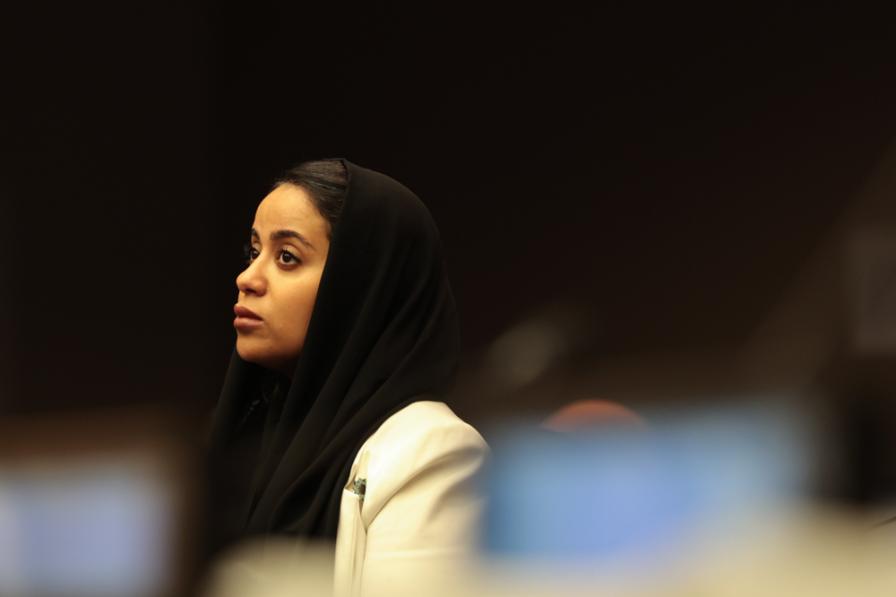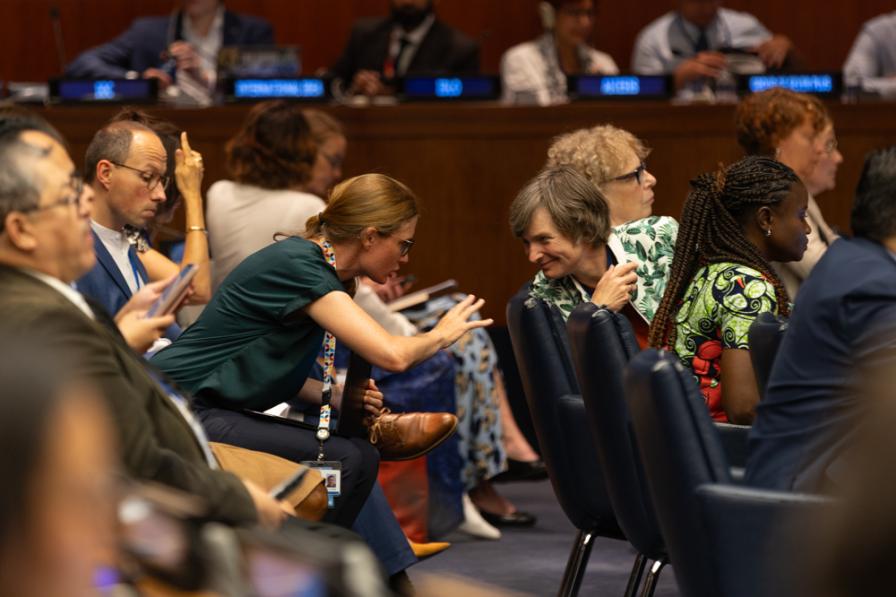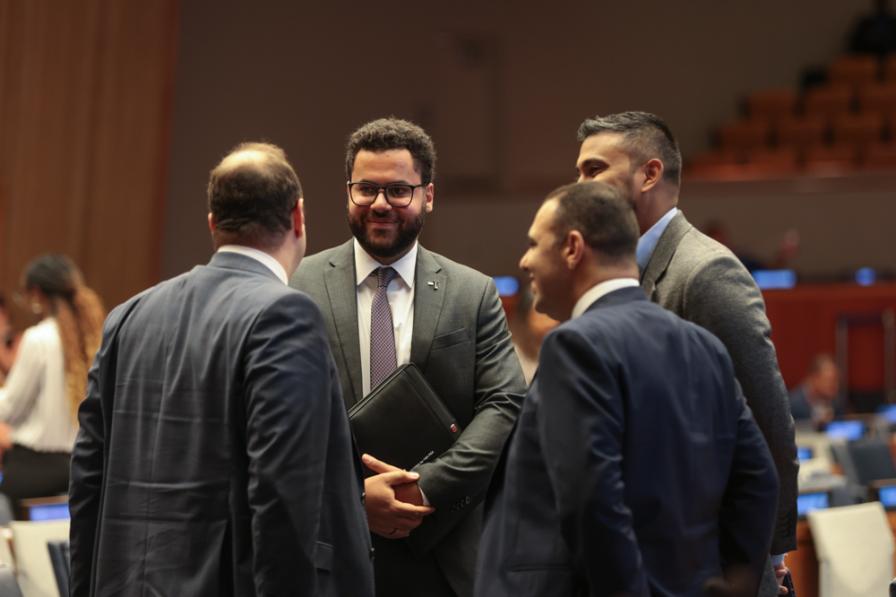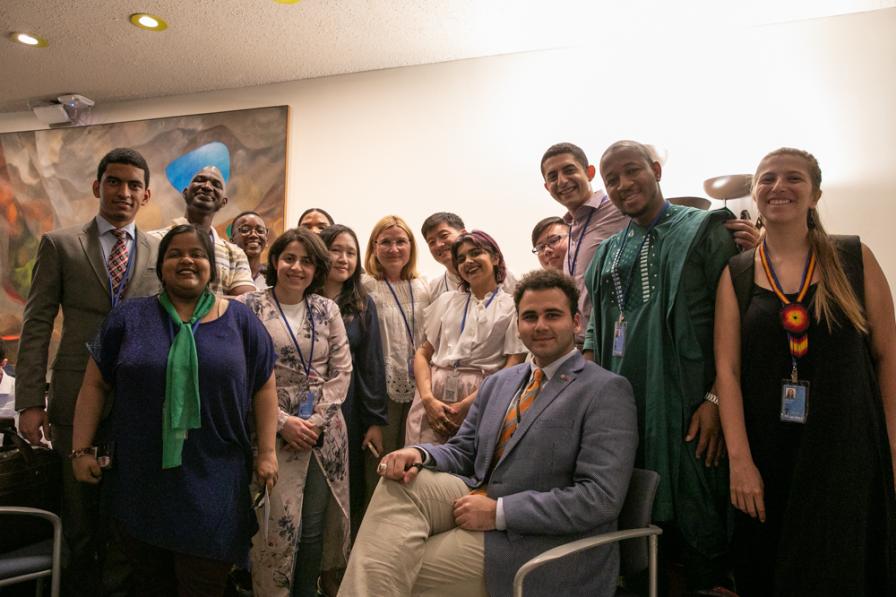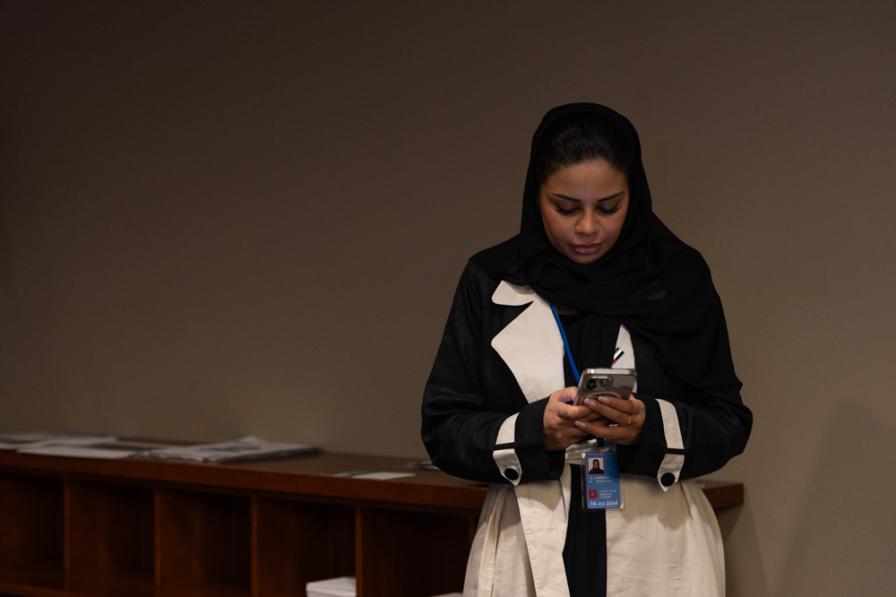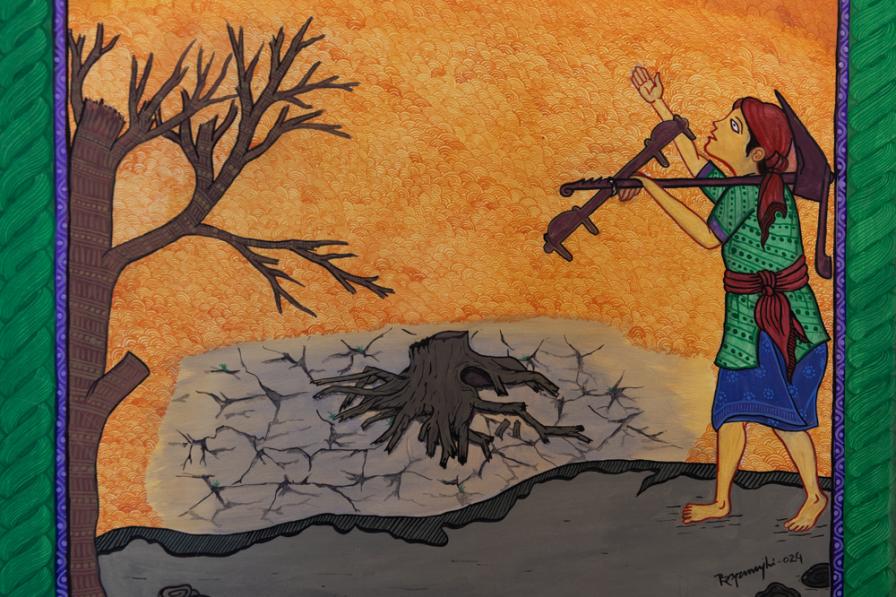On day three of the High-level Political Forum on Sustainable Development (HLPF) the reality of the climate emergency for some of the most vulnerable communities on Earth was front and center. As participants embarked on a review of the Sustainable Development Goal on climate action (SDG 13) and its critical interlinkages with the other Goals, the immediacy of those links became all too apparent. Speaking via video link, during an afternoon session dedicated to Small Island Developing States (SIDS), Gaston Browne, Prime Minister of Antigua and Barbuda, painted a dire picture of the devastation wrought on Caribbean islands and low-lying coastal areas by Hurricane Beryl, the earliest-forming Category 5 hurricane on record.
Want to dig deeper into today's talks? Read the full Earth Negotiations Bulletin daily report.
UN Secretary-General António Guterres has described climate action as the 21st century’s greatest opportunity to drive forward all the SDGs. Conversely, the HLPF was confronted with warnings that with the world on track for 3°C warming, failure to take urgent action on climate will render the other Goals unattainable. During the session reviewing SDG 13, Tarek Ladeb, Vice-President, UN Economic and Social Council (Tunisia), recalled that the foundations laid by the co-emergence of the Paris Agreement and 2030 Agenda in 2015 continue to support coherent and cross-cutting implementation and accelerated action.
Discussions were sobering, as many delegates reported the growing impact of climate-related disasters, before taking a turn to share their national and regional initiatives to overcome these, including disaster and risk reduction measures. Others highlighted the critical state of the multilateral system and the urgent need for financial support, debt burden relief, and capacity building for the least developed. One delegate summed up the challenge, observing that “insufficient climate action is the most expensive option.”
Discussions in the afternoon session considering the implementation of the outcomes from the Fourth International SIDS Conference were punctuated by a series of messages of condolences and solidarity to the victims of Hurricane Beryl.
Prime Minister Browne told delegates that the unprecedented hurricane was clear evidence of “unabated warming of the planet” due to the actions of large polluters. He condemned a lack of political will to rein in large fossil fuel-producing countries.
The last panel of the day addressed transformation from the ground up, with participants returning to issues of poverty and the need to make a meaningful difference on the ground. Speakers emphasized the importance of ensuring access to decision-making by the most marginalized communities, in order to advance the SDGs.
The role of voluntary local reviews was also highlighted as a mechanism for localizing participation and delivery of the SDGs. Critical agents of local advocacy and democracy, such as trade unions and civil society organizations advocating for those suffering discrimination, highlighted their role in advancing the Goals.
With time literally running out in the final stretch of day three’s discussions, delegates raced to impart how local and municipal actors are contributing towards the SDGs, with a final appeal made to provide a place and a voice to these actors in future global-level policy development.
To receive free coverage of global environmental events delivered to your inbox, subscribe to the ENB Update newsletter.
All ENB photos are free to use with attribution. For HLPF 2024, please use: Photo by IISD/ENB | Kiara Worth.
SDG 13: Climate Action

A slide highlights that despite ongoing climate impacts, fossil fuel subsidies have reached an all time high
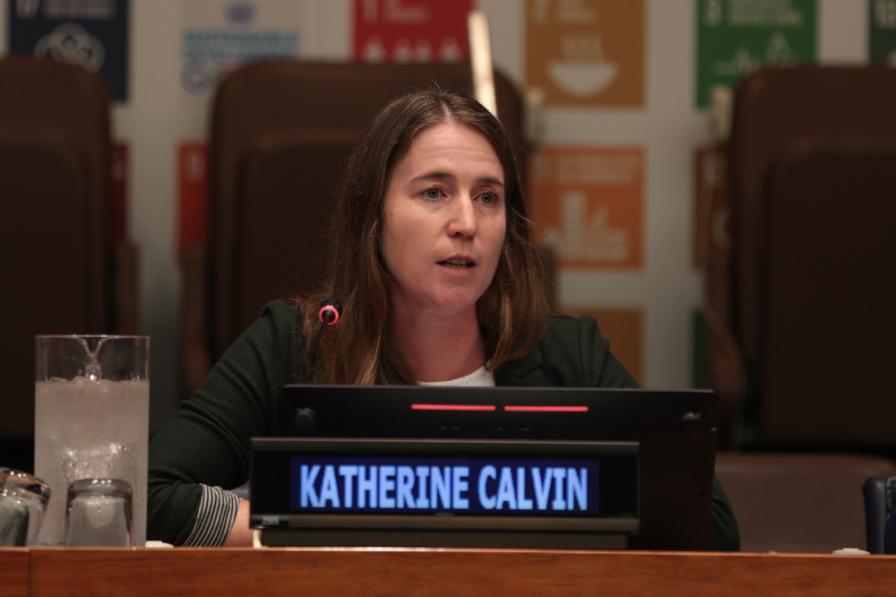
Katherine Calvin, Chief Scientist, National Aeronautics and Space Administration (NASA), and Working Group III Co-Chair, Intergovernmental Panel on Climate Change (IPCC)
Small Island Developing States (SIDS): Implementing the Outcomes of the Fourth SIDS Conference
Transformation from the Ground Up: Acting at the Local Level
Around the Venue
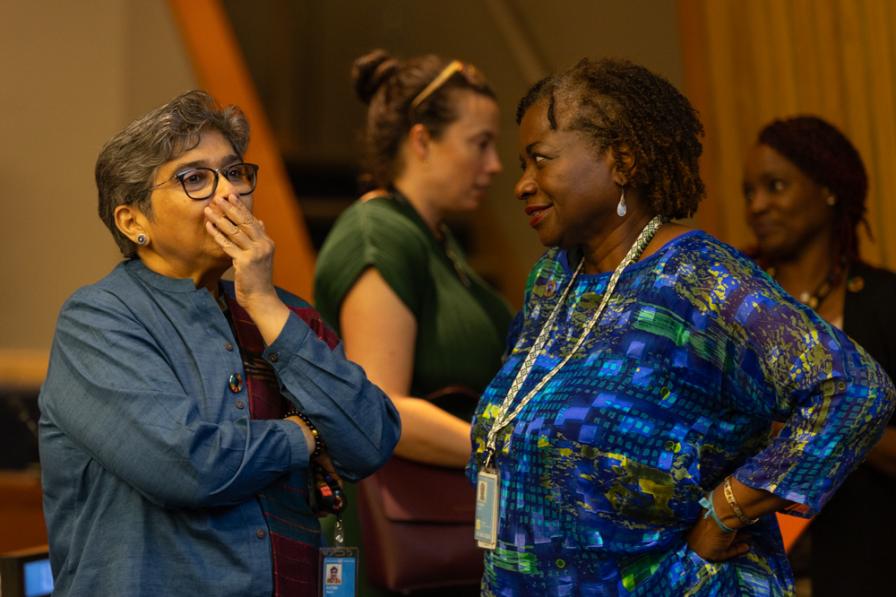
Rabab Fatima, UN-OHRLLS, and Special Adviser for SIDS4, speaks with Natalia Kanem, Executive Director, UNFPA

